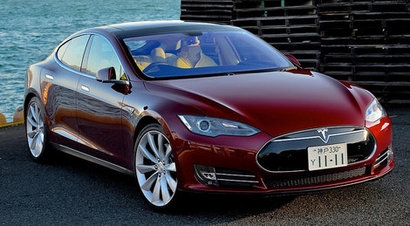
Baringa’s new report ‘Is the UK ready for electric cars?’, reveals that one in three people in the UK (34 percent) are willing to pay a bit more for a 100 percent electric car compared to an equivalent petrol or diesel model. However, people are only prepared to spend a little more to get behind an electric wheel. Less than one in five (18 percent) say they are willing to pay up to 5 percent more, while just 13 percent say they are willing to pay up to 10 percent more.
The company is urging the Government to ensure subsidies remain in place until the cost of electric car ownership falls even further and the public is more convinced of their value.
This willingness to spend more on an electric car is mainly due to the environmental benefits they provide, cited by 68 percent of survey respondents as a motivating factor. Perceptions around total cost of ownership are also important, with half (49 percent) saying they would pay more upfront because a 100 percent electric car will be cheaper to run in the long term. In addition, more than a fifth (22 percent) of people say they would be willing to pay more because subsidies will allow them to recoup the extra cost.
However, even though people are willing to pay a little extra, more than a third (35 percent) think 100 percent electric cars are worse value for money than petrol or diesel cars. Baringa believes this may be due to the expense of well-known brands such as Tesla, whose available models in the UK retail from around £60,000 – much higher than the £13,715 price tag for the UK’s current best-selling conventional car, the Ford Fiesta.
These mixed opinions on value highlight a key issue for policymakers when considering electric cars. Different driving habits mean there can be a significant difference in the total cost of electric cars and petrol or diesel cars. For example, fleet buyers, who are purchasing vehicles to drive much higher mileages than a private buyer, will save more on fuel with 100 percent electric models. As such, electric cars are already on par with more conventional options for some fleet buyers today. In contrast, private buyers, whose vehicles are typically used much less, aren’t likely to see parity until the mid-2020s when electric car prices are expected to have fallen. Baringa is urging the Government to take these diverse needs and economies into consideration when deciding how best to support the electric vehicle market.
“Our research demonstrates that there is appetite to move away from petrol and diesel cars given the environmental benefits on offer, even if it means wallets becoming slightly lighter” said Oliver Rix, Partner in Energy and Resources at Baringa Partners. “However, it also shows that financial considerations remain important, and the additional money people are willing to spend is unlikely to be enough to significantly increase uptake in the short-term. Therefore, the Government needs to ensure grants for electric cars continue to be offered until prices fall more in line with their petrol and diesel counterparts”.
Mr Rix added that car manufacturers also have a role to play and that they should highlight the wider financial benefits of owning an electric car, such as the tax and fuel savings, as well as promoting the cheaper models available. However, work is also needed to increase the range of electric cars available, says Mr Rix: “We know that many people think electric cars are less stylish than their petrol or diesel peers, so stylish, high performance models need to be produced as well as more low-cost options.”
For additional information:

